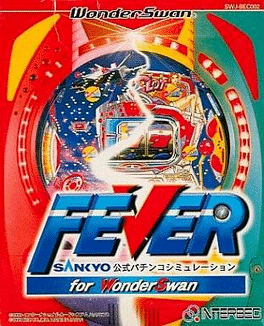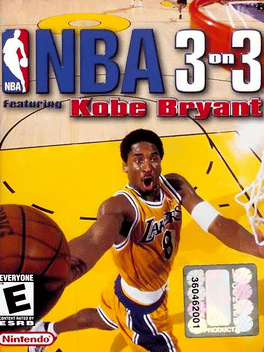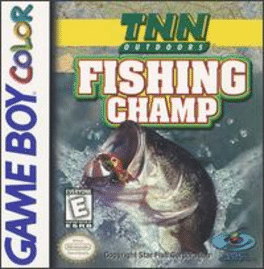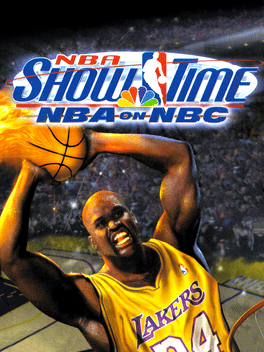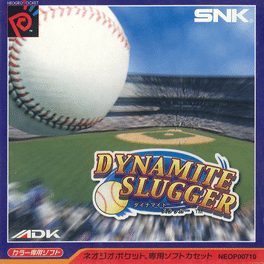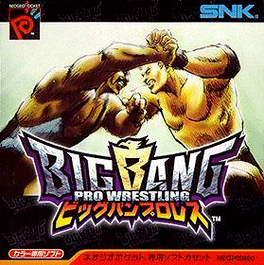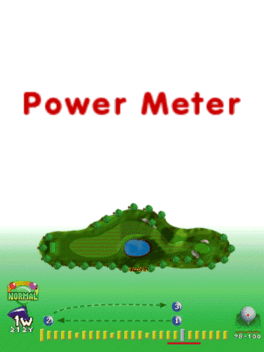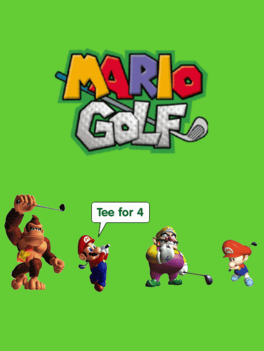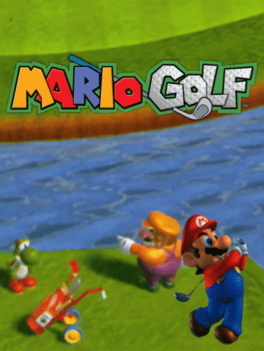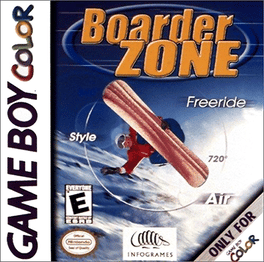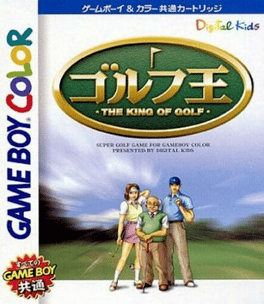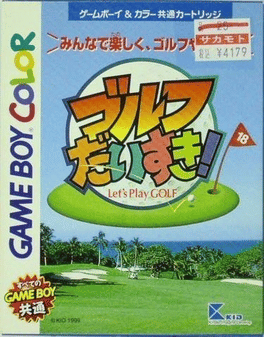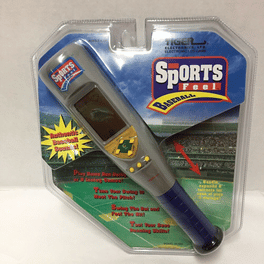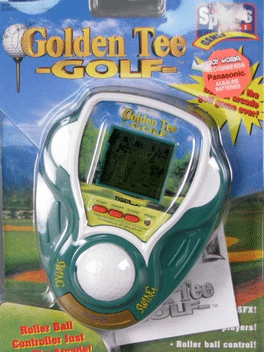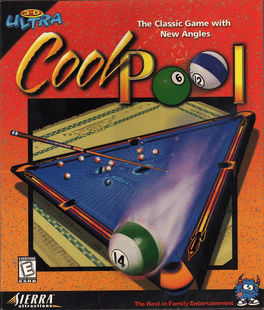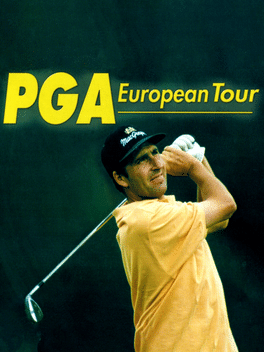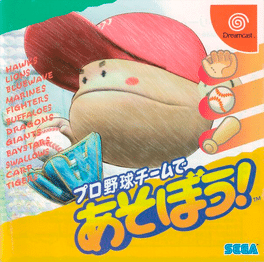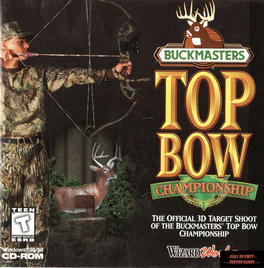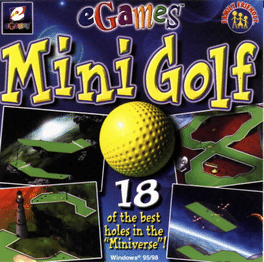New Mac Games - Page 146
-
Fever Sankyo Koushiki Pachinko Simulation for WonderSwan
2000
The Sankyo Fever series' sole WonderSwan entry. Fever Sankyo Koushiki Pachinko Simulation for WonderSwan is a Miscellaneous game, developed and published by Bec, which was released in Japan in 1999. -
NBA 3 on 3 Featuring Kobe Bryant
2000
Experience the wide-open nature of three-on-three basketball with NBA 3-ON-3 FEATURING KOBE BRYANT. You can choose your squad from all of the NBA teams that include actual rosters. Once you have chosen your favorite team, play a Pick-Up game to get accustomed to the game style and controls. When you are ready for some competition, try to win the NBA championship in a 14, 28, 56, or 82-game Season mode. If you don't want to waste your time playing a full season, you can go straight to the Playoffs. No matter what mode you play, the rules of the game can be adjusted, including shot clock violations, backcourt violations, and the maximum number of points that can be scored. If you want to put yourself into the game, you can with the Create-A-Player option. Now you can try to conquer the NBA in NBA 3-ON-3 FEATURING KOBE BRYANT. -
TNN Outdoors Fishing Champ
2000
Get out the rod and reel, because the challenge of fishing can now be put into the palm of your hand thanks to TNN OUTDOORS FISHING CHAMP. Play in the Free Fishing mode to get a feel for the game controls and learn how to reel-in the big one. When you want to test your mettle, try to become the undisputed fishing champion in the Tournament mode. You will have to travel to six different tournaments and catch a predetermined number of a specific kind of fish to stay alive in each. If your friends are fishing fanatics, you can challenge them and see who can catch the most fish in an hour. In all of the modes, there are over 30 different varieties of fish to catch including bluegill, catfish, walleye, rainbow trout, lake trout, and largemouth bass. Play TNN OUTDOORS FISHING CHAMP and have a fish tale to tell your friends. -
NBA Show Time: NBA on NBC
2000
Take on all of the action of two-on-two basketball with no rules in NBA SHOWTIME: NBA on NBC. Choose from all 29 NBA teams, featuring over 100 professional players then hit the hardwood and work on your moves in the Practice mode. When you want some competition, work your way through the Season to the Championship. If you don't want to bother with the Season, skip it, and leap right into the Playoffs. With over 30 different slam-dunk animations, you are going to see something new every time you play. If you can get a player to sink three buckets in a row, watch him light up the scoreboard while he is on fire. If you enjoy wild basketball action, you will love the action in NBA SHOWTIME: NBA on NBC. -
Dynamite Slugger
2000
Dynamite Slugger
2000
Dynamite Slugger is a video game. It was released in 2000 for the Neo Geo Pocket Color handheld game console. The game is similar to other Baseball videogames on the Neo Geo Pocket Color such as Baseball Stars and Baseball Stars Color. Due to Dynamite Slugger being the latest baseball videogame to be released for the Neo Geo Pocket Color it features better graphics than other sports titles. -
Big Bang Pro Wrestling
2000
Only a handful of top wrestlers can be show their face on the TV for their fans at home. In the I.E.W mat, this rule is no exception. In an event practiced for 300 years, only the best performances are in demand. This year, the great king of the I.E.W, Joseph Steel, returns to defend his throne. The story of eight top wrestlers competing for the greatest prize on the ring, the I.E.W champion belt, is about to begin... -
Cool Boarders Pocket
2000
Cool Boarders Pocket
2000
Cool Boarders Pocket, is a Snowboarding video game developed by UEP Systems and published by SNK Playmore for the Neo Geo Pocket Color. Cool Boarders Pocket differs to other games in the Cool Boarders series. It features an isometric (overhead) view instead of a third-person perspective. The game features two play modes a free-ride mode where the player navigates an obstacle course with no restrictions until he/she reaches the goal, and a survival mode where the player snowboards through the obstacle course until they run out of health. The game allows the player to choose one of two characters; a female or male snowboarder. -
Power Meter
1999
-
Mario Golf
1999
Mario Golf
1999
Mario Golf was an Adobe Shockwave game created to promote Mario Golf for the Nintendo 64 that was available from the Sports Illustrated Kids website. -
Mario Golf
1999
Mario Golf
1999
A web-based game published by Nintendo as an advertisement for Mario Golf (Nintendo 64). It was available on the European Nintendo website, but is currently delisted and lost. -
Boarder Zone
1999
Boarder Zone
1999
Game Boy Color version of Boarder Zone is substantially different from its PC namesake. This version features a pseudo-3D environment, where the camera is positioned behind the boarder and the piste scrolls towards the camera. Obstacles appear on the horizon and increase in size as they near the viewpoint. The two main game modes are 'Competition' and 'Challenge'. Competition features a 'race attack' mode (basically a speed race with another AI player), Trick Attack (trick points based over 5 courses, beating a course threshold to advance), Time Attack (best time), and Supreme Attack (race with tricks). Challenge modes is about beating any previous records set for a particular track and supported Time Attack (best time), Trick Attack (best trick points), Slalom Attack (time on a flag course), and Vs Race (which uses the Game Boy Universal Link Cable). There is also a practice mode and a 'ghost boarder' - basically a replay of the player's best race. Trick moves include Mute Grab, Nose Grab, Tweak, Stiffy, Ind -
The King of Golf
1999
-
Golf Daisuki!
1999
-
Sports Feel Baseball
1999
-
Golden Tee Golf
1999
-
3D Ultra Cool Pool
1999
3D Ultra Cool Pool
1999
Do you love a good game of pool? Cool Pool has all your favorites - Eight Ball, Rotation, Cutthroat, Nine Ball, and Classic Pocket Billiards - on dazzling tables with a super-easy interface and with the option to use standard balls and custom balls. But Cool Pool also has five totally original "cool" games that'll curl your cue and which can be played both on a standard or a differently shaped "cool" table. They give pool a whole new angle of strategy, surprise, and fun! -
PGA European Tour
1999
PGA European Tour
1999
PGA European Tour is a golf game that makes use of the official European Tour license. It offers only four courses, specifically Quinta do Lago in Portugal, Kungsängen in Sweden, Druids Glen and the K Club in Ireland. Players can choose to play a quick match, a non-tour golf game or participate in the real tour. The non-tour option includes several modes: in Strokeplay players need to get the least number of strokes in order to win, in Matchplay the goal is to win more holes, while in Skins holes are played for money (winners of holes one to six get 100 euros, seven to twelve - 200 euros, thirteen to eighteen - 300 euros). Up to four players can play non-tour games, and some options allow teams of two to face each other. Participation in the tour itself is a simulation of the real thing. Players start as amateurs, and can select to play as one of 64 European golfers like Nick Faldo and Jose Maria Olazabal, or create their own custom character. To reach professional status it's necessary to reduce the handicap to -
Pro Yakyuu Team de Asobou!
1999
Pro Yakyuu Team de Asobou! (プロ野球チームであそぼう!) is a big-head baseball game made by SEGA. -
Miniverse Minigolf
1999
Miniverse Minigolf
1999
Two 9 hole mini golf courses for 1-4 players. One course is set on "Earth" and features putting through locations such as a construction site, a war zone, and a casino. The other course is set in space and includes a variety of science fiction obstacles like teleporters and laser shields. Players can choose to control their putter by pushing or pulling the mouse and can select one of several different colors for their golf ball.
